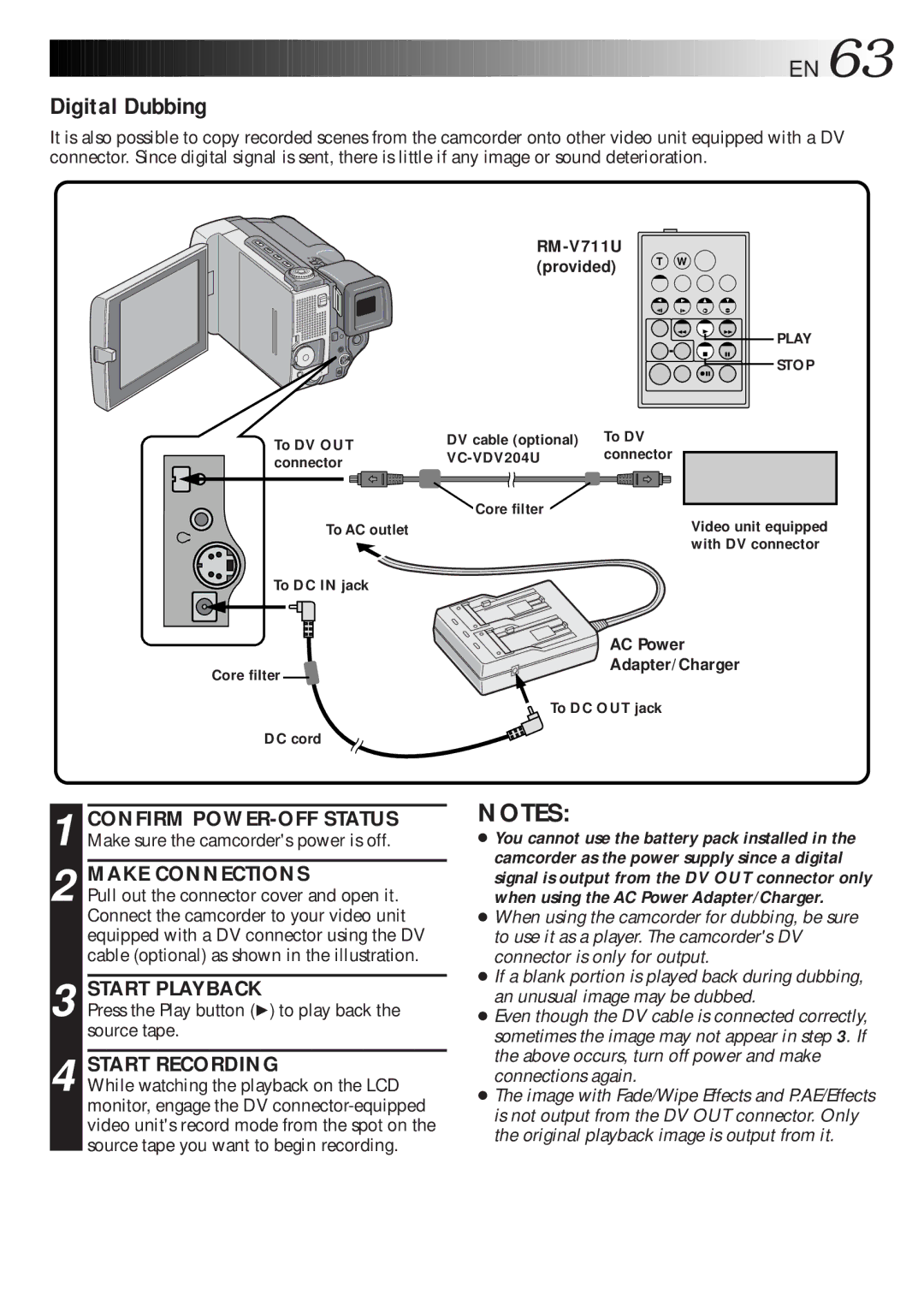
![]()
![]()
![]()
![]()
![]()
![]()
![]()
![]()
![]()
![]()
![]()
![]()
![]()
![]()
![]()
![]()
![]()
![]()
![]()
![]()
![]()
![]()
![]()
![]()
![]()
![]()
![]()
![]()
![]()
![]()
![]()
![]()
![]()
![]()
![]()
![]()
![]()
![]()
![]()
![]()
![]()
![]()
![]()
![]()
![]()
![]()
![]()
![]()
![]()
![]()
![]()
![]()
![]()
![]()
![]()
![]()
![]()
![]()
![]()
![]()
![]()
![]()
![]()
![]()
![]()
![]()
![]() EN
EN![]() 63
63![]()
Digital Dubbing
It is also possible to copy recorded scenes from the camcorder onto other video unit equipped with a DV connector. Since digital signal is sent, there is little if any image or sound deterioration.
RM-V711U
| (provided) | T W | ||
|
| |||
|
|
| PLAY | |
|
|
| STOP | |
To DV OUT | DV cable (optional) | To DV |
| |
connector | ||||
connector | ||||
|
|
| ||
| Core filter |
| Video unit equipped | |
To AC outlet |
|
| ||
|
|
| with DV connector | |
To DC IN jack
Core filter
AC Power Adapter/Charger
To DC OUT jack
DC cord
1 CONFIRM
2 MAKE CONNECTIONS
Pull out the connector cover and open it. Connect the camcorder to your video unit equipped with a DV connector using the DV cable (optional) as shown in the illustration.
3 START PLAYBACK
Press the Play button (4) to play back the source tape.
4 START RECORDING
While watching the playback on the LCD monitor, engage the DV
NOTES:
●You cannot use the battery pack installed in the camcorder as the power supply since a digital signal is output from the DV OUT connector only when using the AC Power Adapter/Charger.
●When using the camcorder for dubbing, be sure to use it as a player. The camcorder's DV connector is only for output.
●If a blank portion is played back during dubbing, an unusual image may be dubbed.
●Even though the DV cable is connected correctly, sometimes the image may not appear in step 3. If the above occurs, turn off power and make connections again.
●The image with Fade/Wipe Effects and P.AE/Effects is not output from the DV OUT connector. Only the original playback image is output from it.
